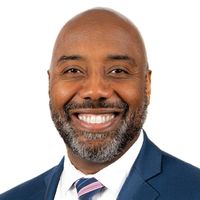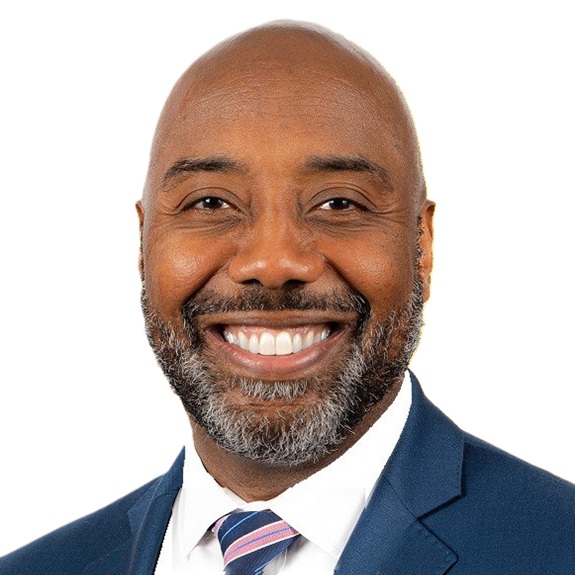Laid Off Near Retirement? How to Prepare for What’s Next
While this is a very stressful time, it’s also an opportunity to reassess values, visions and dreams and get plans in place for the future.


Profit and prosper with the best of Kiplinger's advice on investing, taxes, retirement, personal finance and much more. Delivered daily. Enter your email in the box and click Sign Me Up.
You are now subscribed
Your newsletter sign-up was successful
Want to add more newsletters?

Delivered daily
Kiplinger Today
Profit and prosper with the best of Kiplinger's advice on investing, taxes, retirement, personal finance and much more delivered daily. Smart money moves start here.

Sent five days a week
Kiplinger A Step Ahead
Get practical help to make better financial decisions in your everyday life, from spending to savings on top deals.

Delivered daily
Kiplinger Closing Bell
Get today's biggest financial and investing headlines delivered to your inbox every day the U.S. stock market is open.

Sent twice a week
Kiplinger Adviser Intel
Financial pros across the country share best practices and fresh tactics to preserve and grow your wealth.

Delivered weekly
Kiplinger Tax Tips
Trim your federal and state tax bills with practical tax-planning and tax-cutting strategies.

Sent twice a week
Kiplinger Retirement Tips
Your twice-a-week guide to planning and enjoying a financially secure and richly rewarding retirement

Sent bimonthly.
Kiplinger Adviser Angle
Insights for advisers, wealth managers and other financial professionals.

Sent twice a week
Kiplinger Investing Weekly
Your twice-a-week roundup of promising stocks, funds, companies and industries you should consider, ones you should avoid, and why.

Sent weekly for six weeks
Kiplinger Invest for Retirement
Your step-by-step six-part series on how to invest for retirement, from devising a successful strategy to exactly which investments to choose.
From tech to finance to retail, tens of thousands of U.S. workers are facing widespread layoffs — and employees nearing retirement age are likely bearing the brunt of them.
If you’ve been laid off, you need to be prepared to recalibrate your wealth management and retirement strategy from the ground up. The good news? Now you have ample time to take a step back, assess your priorities and get a solid financial plan in place.
Here are four steps you can take to stay on track with your financial goals if you’re laid off near retirement.

1. Measure your runway.
First, take stock of your cash and liquid reserves and prepare to slash choice expenses in your budget. Once you’ve recalculated your monthly expenses, you can then figure out how long you have before you run out of funds.
Between those reserves and a tighter budget, you should hopefully have enough runway to find another job without rushing into the first opportunity you stumble upon. This way, you can find a job that better fits your financial plan and personal priorities. After all, this is an opportunity to do something meaningful in the last phase of your working life.

2. Use this as an opportunity to build up your tax-free bucket.
If, after measuring your runway, you anticipate being low on funds within the year, plan on rolling over some of your distributions from your pre-tax bucket (401(k), IRA) to your tax-free bucket (Roth IRA, cash value life insurance).
The reason? Income-taxable distributions from 401(k) and investment accounts have a significant tax cost once withdrawn — so now may be an ideal time to take advantage of today’s tax rates for later distribution.

3. Audit and update all your accounts.
Now is a great time to handle the financial housekeeping many of us unconsciously set aside when we are busy working.
To take advantage of the unstructured time while you have it, get a bird’s-eye view of your post-retirement income, including Social Security benefits, pension benefits, employer retirement plans and other investment vehicles. With some calculations, you should be able to determine the minimum amount of money you need to invest to keep your plans on track.
From there, review your various financial accounts — whether it be checking and savings accounts, IRAs, 401(k)s, life insurance plans or other investment vehicles — to ensure all the beneficiaries named are up to date and reflect who you want to pass those funds to when you are no longer living. For example, if you’re divorced and remarried, you probably wouldn’t want your former spouse to inherit your assets over your current spouse, just because you never updated your beneficiary forms.
Next, take care to tackle any administrative work you’ve been putting off and update your legal and estate planning documents with your estate planning attorney. These include your will, health care directive and power of attorney. Should you experience an unexpected decline in physical and mental capabilities, updating these documents is crucial to receiving the end-of-life care best suited to your personal situation.
If there are no further gaps (or they are easy to manage), you may discover that you have the opportunity to pursue a passion project rather than another job. And if you played your cards right, this may even be a chance to start the business you’ve always dreamed about.

4. Address your long-term care plan.
While it’s nice to believe we’ll all live independently in retirement, it’s also important to create a fund for long-term care. While some federal and state programs will help with medical costs (e.g., for hospice care), they don’t often cover assisted living or long-term care except in select cases. By putting together a long-term care plan now and obtaining insurance for it, you’ll gain peace of mind knowing your future will be cared for.
Remember: This moment is an opportunity
Getting laid off at this critical juncture can be an eye-opening experience for near-retirees. The newly freed time presents them with an opportunity to reassess their values, visions and dreams.
While this is certainly a stressful time, taking these steps can help give you the comfort you need to envision the next chapter in your life — and the means to make it happen.
This article has been obtained from an outside source and is provided as a courtesy by Stephen B. Dunbar III, JD, CLU, Executive Vice President of the Georgia Alabama Gulf Coast Branch. Equitable Advisors and Equitable Network do not offer legal or tax advice and make no representation as to the accuracy or completeness of this information. You should consult your own legal and tax advisors regarding your particular circumstance. Stephen Dunbar offers securities through Equitable Advisors, LLC (NY, NY 212-314-4600), member FINRA, SIPC (Equitable Financial Advisors in MI & TN). Annuity and insurance products offered through Equitable Network, LLC. Equitable Network conducts business in CA as Equitable Network Insurance Agency of California, LLC, in UT as Equitable Network Insurance Agency of Utah, LLC, in PR as Equitable Network of Puerto Rico, Inc. GE-5757557.1 (6/23) (Exp. 6/25)
This article was written by and presents the views of our contributing adviser, not the Kiplinger editorial staff. You can check adviser records with the SEC or with FINRA.
Profit and prosper with the best of Kiplinger's advice on investing, taxes, retirement, personal finance and much more. Delivered daily. Enter your email in the box and click Sign Me Up.

Stephen Dunbar, Executive Vice President of Equitable Advisors’ Georgia, Alabama, Gulf Coast Branch, has built a thriving financial services practice where he empowers others to make informed financial decisions and take charge of their future. Dunbar oversees a territory that includes Georgia, Alabama and Florida. He is also committed to the growth and success of more than 70 financial advisers. He is passionate about helping people align their finances with their values, improve financial decision-making and decrease financial stress to build the legacy they want for future generations.
-
 The New Reality for Entertainment
The New Reality for EntertainmentThe Kiplinger Letter The entertainment industry is shifting as movie and TV companies face fierce competition, fight for attention and cope with artificial intelligence.
-
 Stocks Sink With Alphabet, Bitcoin: Stock Market Today
Stocks Sink With Alphabet, Bitcoin: Stock Market TodayA dismal round of jobs data did little to lift sentiment on Thursday.
-
 Betting on Super Bowl 2026? New IRS Tax Changes Could Cost You
Betting on Super Bowl 2026? New IRS Tax Changes Could Cost YouTaxable Income When Super Bowl LX hype fades, some fans may be surprised to learn that sports betting tax rules have shifted.
-
 The 4 Estate Planning Documents Every High-Net-Worth Family Needs (Not Just a Will)
The 4 Estate Planning Documents Every High-Net-Worth Family Needs (Not Just a Will)The key to successful estate planning for HNW families isn't just drafting these four documents, but ensuring they're current and immediately accessible.
-
 Love and Legacy: What Couples Rarely Talk About (But Should)
Love and Legacy: What Couples Rarely Talk About (But Should)Couples who talk openly about finances, including estate planning, are more likely to head into retirement joyfully. How can you get the conversation going?
-
 How to Get the Fair Value for Your Shares When You Are in the Minority Vote on a Sale of Substantially All Corporate Assets
How to Get the Fair Value for Your Shares When You Are in the Minority Vote on a Sale of Substantially All Corporate AssetsWhen a sale of substantially all corporate assets is approved by majority vote, shareholders on the losing side of the vote should understand their rights.
-
 How to Add a Pet Trust to Your Estate Plan: Don't Leave Your Best Friend to Chance
How to Add a Pet Trust to Your Estate Plan: Don't Leave Your Best Friend to ChanceAdding a pet trust to your estate plan can ensure your pets are properly looked after when you're no longer able to care for them. This is how to go about it.
-
 Want to Avoid Leaving Chaos in Your Wake? Don't Leave Behind an Outdated Estate Plan
Want to Avoid Leaving Chaos in Your Wake? Don't Leave Behind an Outdated Estate PlanAn outdated or incomplete estate plan could cause confusion for those handling your affairs at a difficult time. This guide highlights what to update and when.
-
 I'm a Financial Adviser: This Is Why I Became an Advocate for Fee-Only Financial Advice
I'm a Financial Adviser: This Is Why I Became an Advocate for Fee-Only Financial AdviceCan financial advisers who earn commissions on product sales give clients the best advice? For one professional, changing track was the clear choice.
-
 I Met With 100-Plus Advisers to Develop This Road Map for Adopting AI
I Met With 100-Plus Advisers to Develop This Road Map for Adopting AIFor financial advisers eager to embrace AI but unsure where to start, this road map will help you integrate the right tools and safeguards into your work.
-
 The Referral Revolution: How to Grow Your Business With Trust
The Referral Revolution: How to Grow Your Business With TrustYou can attract ideal clients by focusing on value and leveraging your current relationships to create a referral-based practice.
